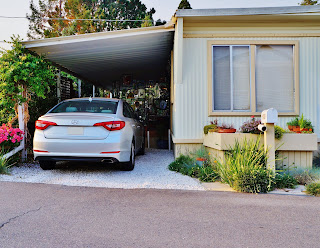Manufactured home owners who live in leased-space parks take on a dual role as home owner and park tenant. In addition, private individuals or corporations own most parks, not the residents. The United States Court of Appeals for the 9th Circuit stated: "Because the owner of the mobile home cannot readily move it to get a lower rent, the owner of the land has the owner of the mobile home over a barrel." (Guggenheim v. Goleta, Dec. 2010)
This complex housing situation has few if any other parallels. Manufacturers and dealerships, park owners and managers abused households that purchased manufactured homes. As a result of abuses, the Golden State Manufactured-home Owners League (GSMOL) championed laws and California legislators adopted laws to partially protect the rights of home owners. These laws became consolidated in the MRL, generally California Civil Code Sections 798 and 799.
 Park residents must enforce the MRL by standing up for their rights. They may ultimately need to go through the civil courts. To succeed, they must know the contents of the MRL.
Park residents must enforce the MRL by standing up for their rights. They may ultimately need to go through the civil courts. To succeed, they must know the contents of the MRL.Copyright - Carl Eric Leivo, PH.D.
First image courtesy of stockimages at freedigitalphotos.net.































